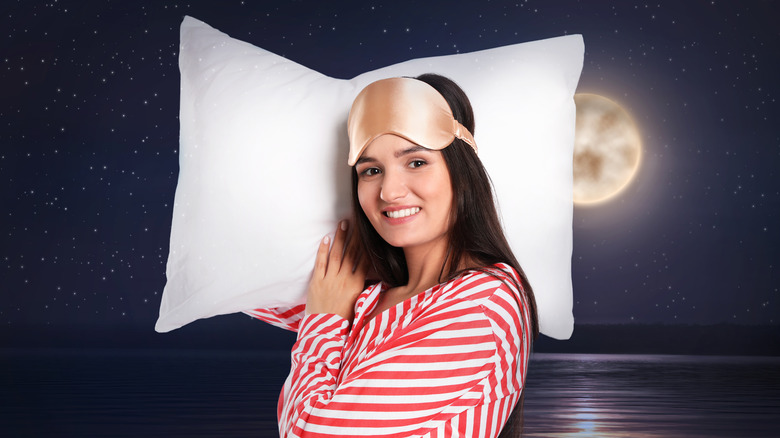Do you ever find yourself sleeping differently depending on the moon phase? So many things can affect your sleep, including how fast you fall asleep, how long you sleep, your sleep stages, and the quality of your sleep. According to NASA, the moon has eight phases — the new moon when it is dark, waxing crescent, first quarter, waxing gibbous, full, waning gibbous, last quarter, and waning crescent. A full moon rises and sets with the sun and usually lasts a few days.
Have you ever heard that a full moon affects the way people behave? A 2024 study published in the Journal of Biological and Medical Rhythm Research looked at the moon phases and whether it affects psychiatric hospitalizations. Researchers studied 780 people who were transferred or admitted to the department of psychiatry over a year, and whether physical or chemical restraints were used. They discovered the use of restraints were used far more often during a full moon.
Another study conducted over two years looked at emergency room visits after an animal bite and the correlation to the moon’s phase. Researchers found a significant increase in animal bites leading to an emergency room visit during a full moon (via BMJ).
What does this mean for you and your sleep? Does the full moon affect how you’ll sleep?
Full moon and sleep

A sleep study analysis looked at how the moon phase could affect sleep and melatonin levels. Researchers found that the full moon correlated with worse sleep. Participants in the study reported reduced sleep quality, took five minutes longer than usual to fall asleep, slept 20 minutes less, had 30% less REM sleep, and took longer to get to REM sleep.
A 2024 study published in Cell found that people slept less during a full moon — overall 25 minutes less — and more woke up throughout the night. Participants in this study took longer to reach REM sleep during the new moon instead of the full moon, which is different from the sleep study analysis.
Researchers in another study had 319 people do a one-night sleep study, and found that they had less deep sleep, took longer to reach REM sleep, and had lower sleep efficiency. Women were more affected than men (via Sleep Medicine).
Not convinced yet? Yet another study, this one more extensive than others, analyzed sleep patterns in three communities in Argentina and over 400 college students in the United States. They all took longer to fall asleep and slept less overall three to five days before a full moon.
You can blame your poor night’s sleep on the full moon.